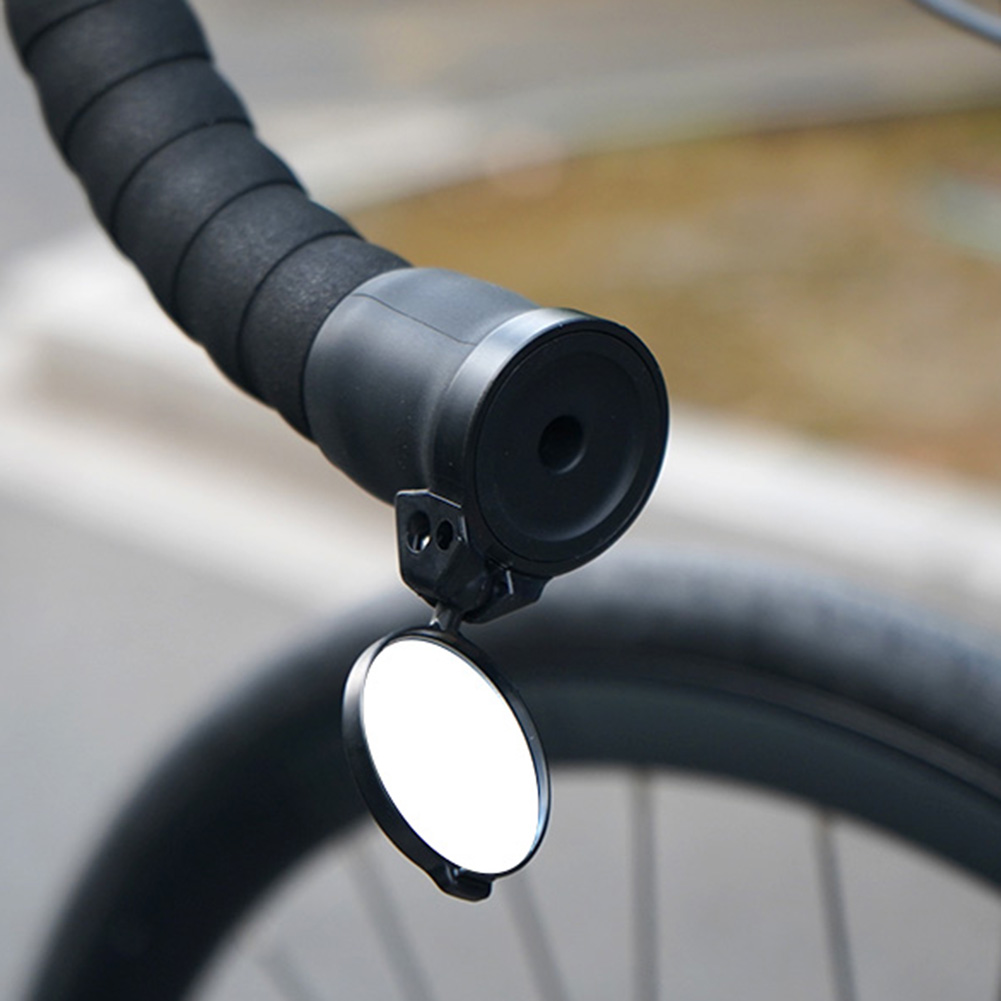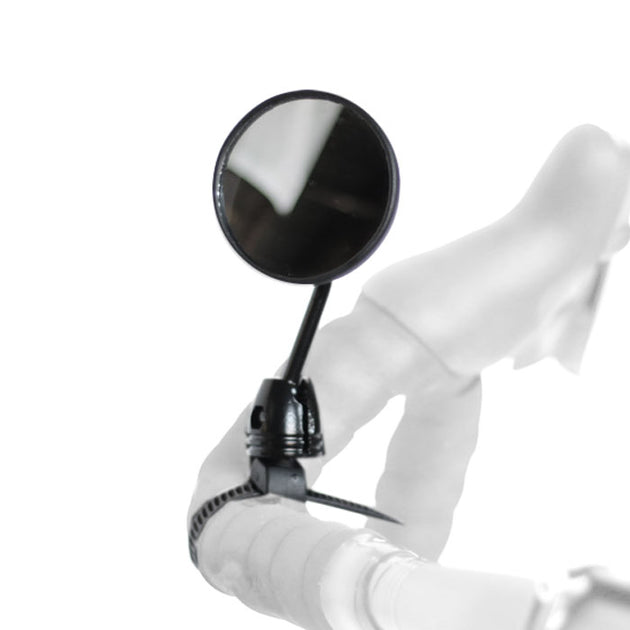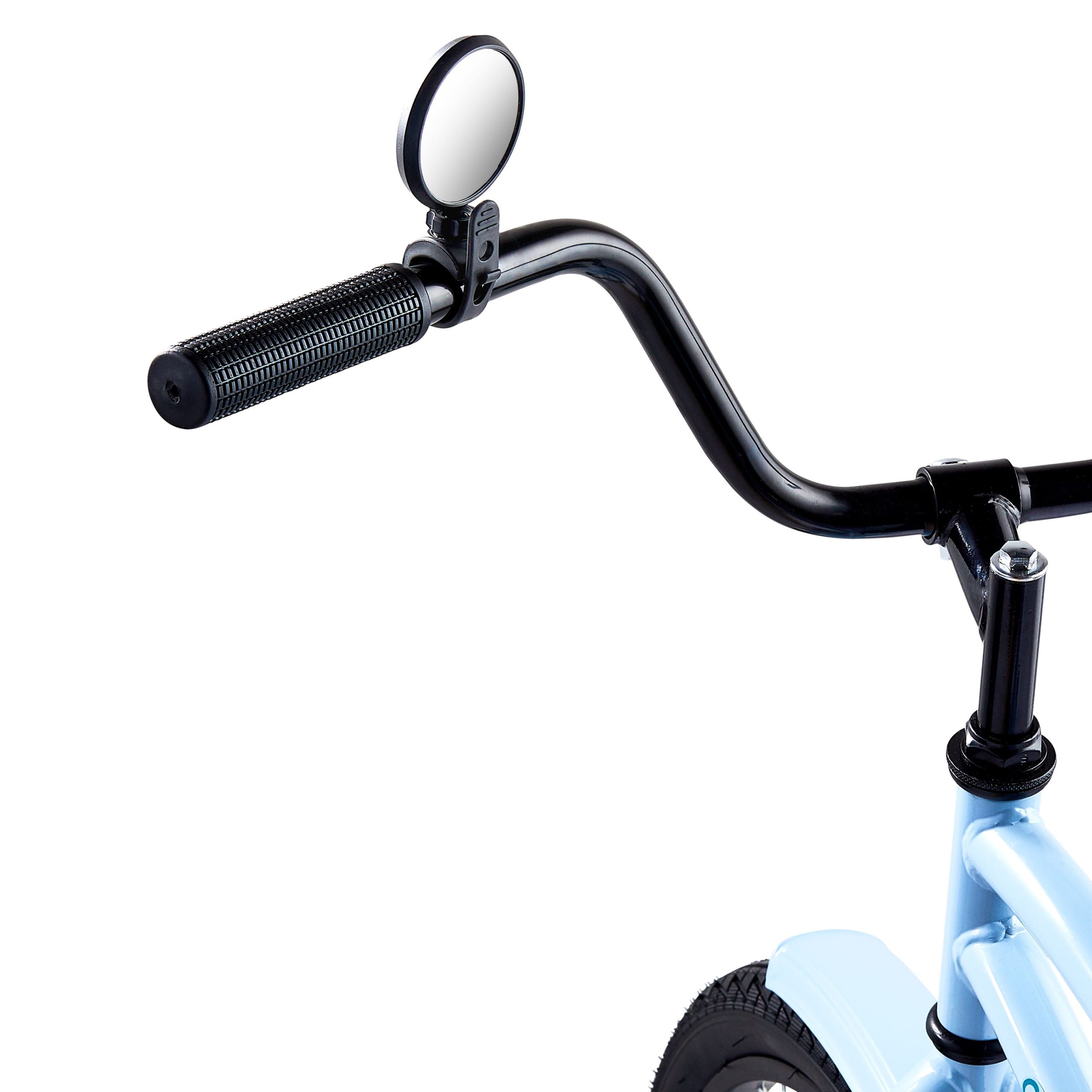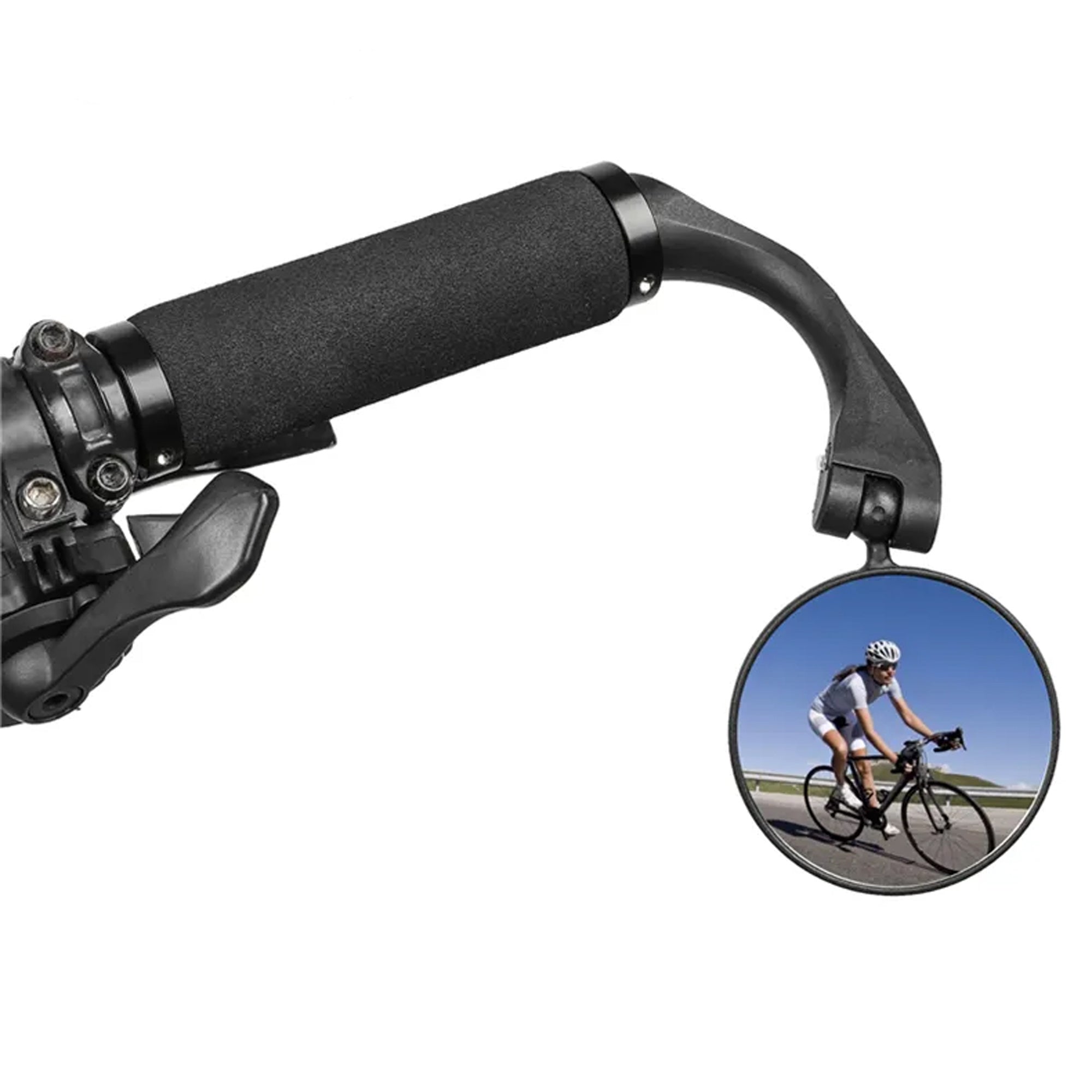Bicycle mirror are an essential accessory for any cyclist, as they provide a safe and convenient way to monitor traffic and other riders behind you. Whether you are commuting to work or going for a leisurely ride, a bicycle mirror can help improve your awareness of your surroundings and make your cycling experience more enjoyable. In this guide, we will discuss the different types of bicycle mirrors and provide a step-by-step guide on how to use them effectively.

Types of Bicycle Mirrors
There are several different types of bicycle mirrors available on the market, and each has its own unique features and benefits. Some of the most common types of bicycle mirrors include:
Handlebar-mounted mirrors:
These are the most common type of bicycle mirror, as they are easy to install and adjust. They are typically attached to the end of the handlebars and can be adjusted to provide a clear view of the road behind you.
Helmet-mounted mirrors:
These mirrors are attached to the cyclist’s helmet and provide a more stable view of the road behind. They are often favored by more experienced cyclists who want a clear and unobstructed view of their surroundings.
Eyeglass-mounted mirrors:
These small, lightweight mirrors are attached to the cyclist’s eyeglasses and provide a convenient way to monitor traffic without turning your head.
Each type of bicycle mirror has its own advantages and disadvantages, so it’s important to choose the one that best fits your needs and preferences.
Installing the Mirror
Once you have chosen the type of bicycle mirror that you want, the next step is to install it on your bike. The process for installing a bicycle mirror will vary depending on the type of mirror you have chosen, but here are some general guidelines to follow:
- Handlebar-mounted mirrors: To install a handlebar-mounted mirror, simply attach it to the end of the handlebars using the provided hardware. Adjust the mirror so that it provides a clear view of the road behind you.
- Helmet-mounted mirrors: To install a helmet-mounted mirror, attach it to your helmet using the provided adhesive or strap. Adjust the mirror so that it provides a clear view of the road behind you.
- Eyeglass-mounted mirrors: To install an eyeglass-mounted mirror, attach it to your eyeglasses using the provided clips. Adjust the mirror so that it provides a clear view of the road behind you.

Using the Mirror
Once the mirror is installed, it’s important to learn how to use it effectively. Here are some tips for using a bicycle mirror:
- Adjust the mirror: Before you start riding, take the time to adjust the mirror so that it provides a clear view of the road behind you. You may need to make additional adjustments as you ride to ensure that the mirror remains in the correct position.
- Check the mirror regularly: As you ride, make it a habit to check the mirror regularly to monitor traffic and other riders behind you.
- Use the mirror in conjunction with shoulder checks: While a bicycle mirror can provide a convenient way to monitor traffic, it’s important to continue using shoulder checks to ensure that there are no blind spots.
Advantages of bicycle mirror
Bicycling is a popular and eco-friendly mode of transportation that is both enjoyable and beneficial for physical and mental well-being. However, the safety of cyclists has always been a concern, especially when sharing the road with larger and faster vehicles. In recent years, the use of bicycle mirrors has gained traction as a way to enhance safety and awareness while cycling. Bicycle mirrors are small, lightweight attachments that can be mounted on the handlebars, helmet, or glasses to provide cyclists with a rearward view of the road and potential hazards.
Enhanced Safety
One of the primary advantages of using a bicycle mirror is the enhanced safety it provides for cyclists. By having a clear view of the traffic and road conditions behind them, cyclists can make more informed and safer decisions while riding. This is especially important when navigating busy urban streets or sharing the road with motor vehicles. With a quick glance at the mirror, cyclists can easily assess the approach of vehicles and adjust their position on the road as needed. This proactive approach to safety can help prevent accidents and reduce the risk of collisions.

Improved Awareness
Bicycle mirrors also contribute to improved awareness for cyclists. When riding in a group or in busy urban settings. It can be challenging to keep track of the position and movements of other cyclists and vehicles. A bicycle mirror allows cyclists to maintain awareness of their surroundings. Without having to constantly turn their head to check for potential hazards. This can be particularly helpful when passing or being passed by other cyclists. As well as when navigating complex traffic situations. The increased awareness provided by a bicycle mirror can help cyclists make better decisions and react more effectively to sudden changes in traffic conditions.
Convenience
The convenience of using a bicycle mirror is another significant advantage. Unlike traditional rearview mirrors on motor vehicles, bicycle mirrors are compact, lightweight, and easy to install. They can be mounted on various parts of the bicycle, such as the handlebars, helmet, or glasses, depending on the cyclist’s preference. This versatility allows cyclists to choose the most suitable position for their mirror based on their riding style and comfort. Additionally, many bicycle mirrors are adjustable, allowing cyclists to easily fine-tune the angle and position of the mirror for optimal visibility. The convenience of having a bicycle mirror makes it a practical and valuable accessory for cyclists of all levels.
Increased Confidence
Cyclists who use bicycle mirrors often report feeling more confident and secure while riding. The additional awareness and safety provided by the mirror can boost a cyclist’s confidence in navigating challenging or unfamiliar cycling environments. This increased confidence can lead to a more enjoyable and stress-free biking experience. As cyclists can focus on the pleasure of riding without constant worry about potential hazards. Moreover, the added confidence from using a bicycle mirror may encourage more people to take up cycling as a mode of transportation. Ultimately contributing to a healthier and more sustainable lifestyle.
Adaptability
Another advantage of bicycle mirrors is their adaptability to different cycling situations and environments. Whether cycling in urban settings, on country roads, or in off-road trails. A bicycle mirror can provide valuable rearward visibility that enhances safety and awareness. Additionally, bicycle mirrors are suitable for various types of bicycles. Including road bikes, mountain bikes, commuter bikes, and electric bikes. This adaptability makes bicycle mirrors a practical and versatile accessory for cyclists of all disciplines and preferences.
With enhanced safety, improved awareness, convenience, increased confidence. And adaptability, bicycle mirrors are valuable accessories that can contribute to a more enjoyable and secure biking experience. As cycling continues to grow in popularity as a sustainable and healthy mode of transportation. The adoption of bicycle mirrors can further promote safety and well-being for cyclists on the road.

Conclusion
In conclusion, a bicycle mirror is a valuable accessory that can improve the safety and enjoyment of your cycling experience. By choosing the right type of mirror, installing it correctly. And using it effectively, you can enhance your awareness of your surroundings and stay safe on the road. Whether you are a commuter, a recreational cyclist, or a competitive rider. A bicycle mirror is a worthwhile investment that can make a positive impact on your cycling experience.
